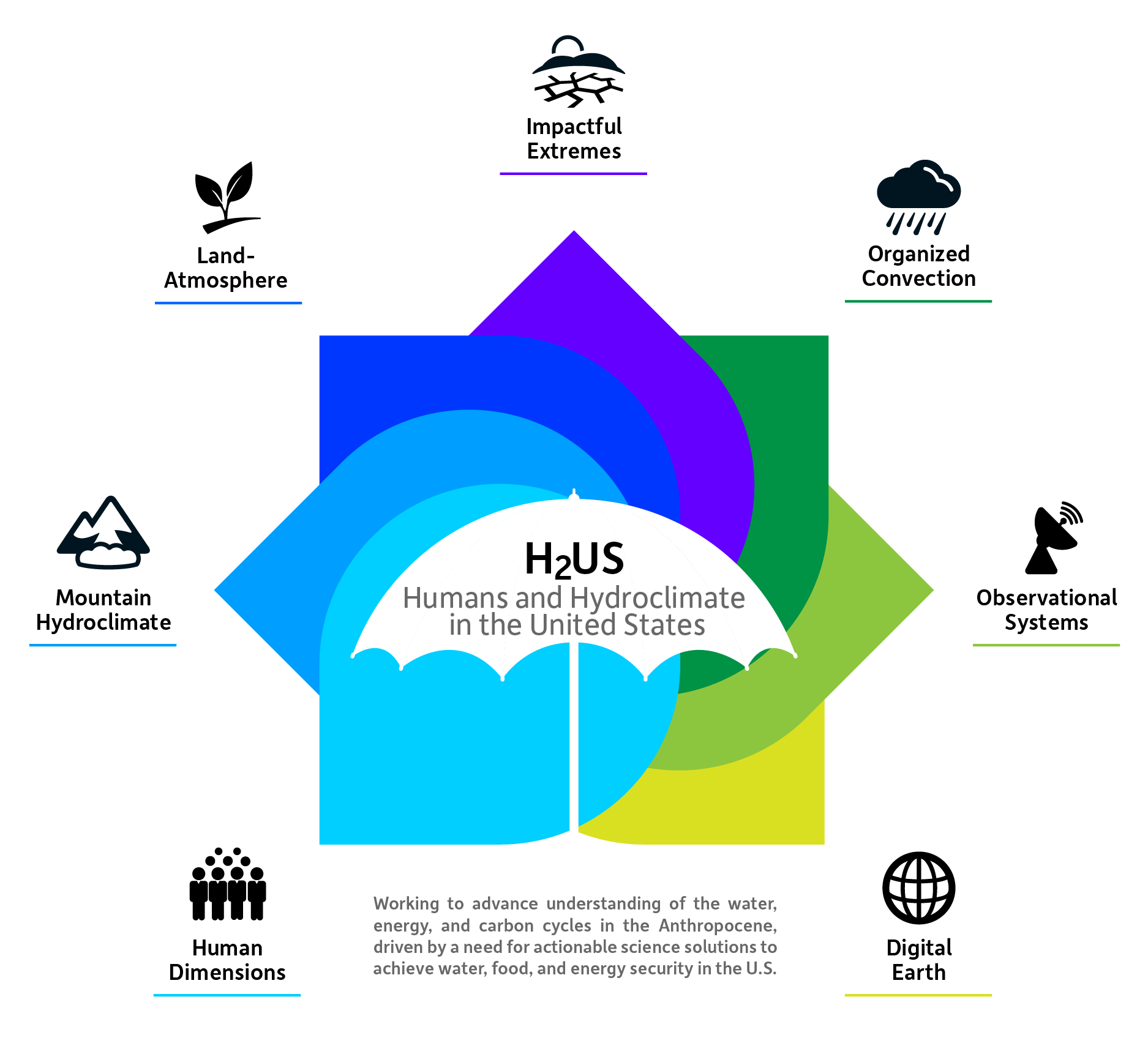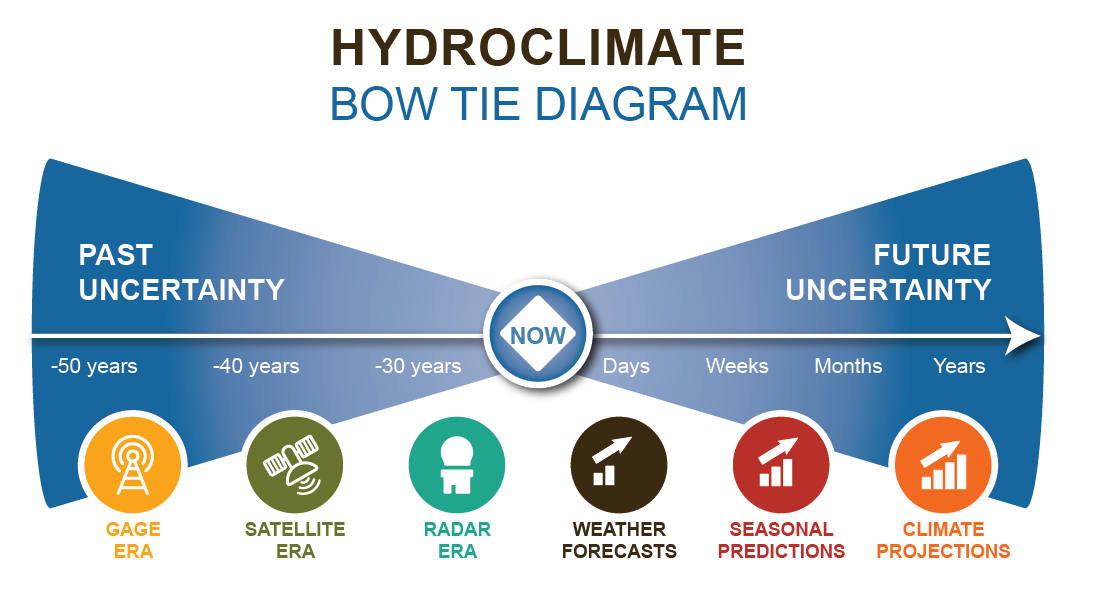Humans and Hydroclimate in the United States (H2US)
An Affinity Group Supporting a New Regional Hydroclimate Project in the United States
H2US Mission
The Humans and Hydroclimate in the United States (H2US) Project is envisioned as a ten-year effort to understand and characterize the physical processes of the water, energy, and carbon cycles in the Anthropocene. This is driven by a need for actionable science solutions to achieve water, food, and energy security in the U.S.
What is a Regional Hydroclimate Project (RHP)?
Global Energy and Water Exchanges (GEWEX) RHPs are generally large, regionally-focused, multidisciplinary projects that aim to improve the understanding and prediction of that region’s weather, climate, and hydrology.
Affinity Group
This web site serves the H2US Affinity Group. We aim to build a community of scholars, professionals, and practitioners from broad geographic and technical expertise to enable a convergent science approach for hydroclimate modeling, observations, and applications.
In December, 2023 the US Regional Hydroclimate Project (US-RHP) Affinity Group was renamed as the Humans and Hydroclimate in the United States (H2US) Affinity Group.
Become an Affinity Group Member
You must be a member of our Google Group in order to view meeting materials.
Science Summary Plan
- H2US Science Summary Plan - Version 1.0 Updated Feb. 11, 2025 (4.42 MB)
Thematic Research Areas
We identified eight thematic research areas to advance. These are: Human Dimensions, Mountain Hydroclimate, Land-Atmosphere Processes and Coupling, Impactful Extremes, Organized Convection and Precipitating Systems, Advancing Observational Systems, Coastal Processes and Coupling, and the Digital Earth for the U.S (DEUS). Seven Working Groups were formed (see figure) for each theme, who identified the gaps (motivation), core science questions, and some candidate activities for their respective topics, and considered the implied scope. We have not formed a Coastal Processes and Coupling Working Group yet (we are looking for volunteers).

Why an RHP?
One of the primary drivers for this project is to reduce the uncertainty in our ability to measure, predict and understand the coupled water, energy and carbon cycles

The H2US is an opportunity to develop a coordinated, holistic response to hydroclimate change. In the past several years, the US has witnessed hydroclimate events that are without historical precedent (e.g., heat extremes, droughts, fires, relentless coastal storms, flooding, and record snowfalls), and the number of such events are growing. Yet the environmental science community often responds in a disjointed way, as there is no established mechanism to provide the needed coordination and synthesis. The H2US would create a flow of information that is sustained, coordinated, and actionable to the agencies and user communities, as these events and their aftermath unfold. This would help address and align the sizable gaps between the physical and human hydroclimate knowledgebase across the community. It is an opportunity to engage and coproduce science with a range of scientists and knowledge holders, in order to develop a more comprehensive and complete understanding of our changing hydroclimatic system. It is also an opportunity to broaden and expand participation in multidisciplinary hydroclimate modeling, observations, and applications research, and to make actionable outputs more accessible and usable to educators and community users. Lastly, this project will be a living process that will continue to evolve with community input.
Related Links
- World Climate Research Program (WCRP)
- Global Energy and Water Exchanges (GEWEX)
- GEWEX Hydroclimatology Panel (GHP)
- Andes Hydroclimate Research Program (ANDEX)
- Global Water Futures
- Baltic Earth
- WCRP - Digital Earth
- GEWEX LS4P
- South America Affinity Group (SAAG)
- Convergence Science Program
- Earth System Predictability Across Timescales (ESPAT)